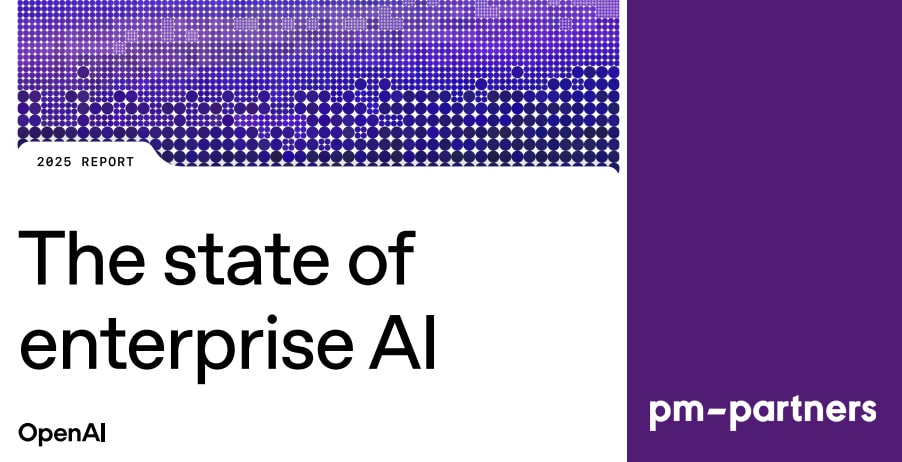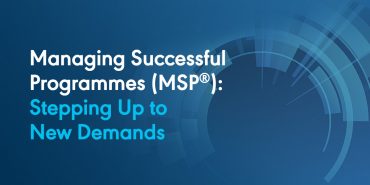Reframing Product Thinking: Lessons from Kaiser Permanente’s Transformation

In today’s complex and fast-paced business environment, organisations re-evaluate how they define and deliver value. For many, this involves shifting from traditional project-based models to product-led operating structures.
One organisation that has successfully navigated this transition is Kaiser Permanente, one of the United States’ largest not-for-profit healthcare providers. Their journey, featured in Transformed: Moving to the Product Operating Model, offers valuable lessons for leaders working across product, project, and delivery functions.
While the context may be healthcare, the lessons are highly relevant to product and project managers across sectors – particularly those operating in large, multi-layered organisations where complexity is the norm.
Before the transformation
As one of the largest not-for-profit healthcare providers in the United States, Kaiser Permanente serves more than 12 million members across an integrated network of hospitals, clinicians, and insurance services. But before 2019, its digital care experience was falling short of expectations. Virtual care was only available during business hours. Services were limited to patients’ local markets. Technical and regulatory barriers made it difficult to scale digital delivery consistently across regions.
These constraints – already challenging in a complex organisation became critical with the arrival of COVID-19, when demand for reliable, round-the-clock care increased dramatically. In response, Kaiser Permanente’s digital division undertook a fundamental transformation. More than a technology upgrade, it marked a shift in mindset – from siloed delivery to a product operating model centred around customer outcomes. They formed a dedicated digital product and technology group, restructured around value streams, and began redesigning the patient journey through the lens of product thinking.
From fragmentation to focus: Establishing a shared product model
Like many large organisations, Kaiser Permanente discovered that one of the greatest barriers to scaling digital success was a lack of clarity around what a “product” was. Different teams used the term in different ways, some referring to infrastructure, others to services or tools – leading to confusion, duplicated efforts, and inconsistent delivery.
The organisation responded by developing an enterprise-wide product model – a consistent definition and structural approach that applied across business units. This gave teams and leaders:
- A shared language to support alignment
- Greater clarity around ownership and accountability
- Improved prioritisation and investment decisions
For organisations operating in complex ecosystems, defining what constitutes a product and how it connects to strategy is often the first step toward meaningful transformation.
Product leadership as a capability
A key success factor in Kaiser Permanente’s journey was how they approached product leadership. Instead of relying solely on hiring new talent into “product” roles, the organisation focused on building product capability across existing teams. This included:
- Training non-product professionals to apply product thinking in their work
- Embedding product coaches into delivery teams
- Developing internal communities to support learning and mindset shift
By building capability across roles and functions, the transformation wasn’t just about structure it became part of the organisation’s culture.
This approach reflects a broader shift happening in many industries: product thinking is no longer confined to product managers. It’s a strategic competency relevant to project professionals, service teams, and business leaders alike.
Moving from outputs to outcomes
Another cornerstone of Kaiser Permanente’s transformation was the decision to prioritise outcomes over outputs.
Instead of measuring success by the volume of features released or tasks completed, teams began to evaluate success based on whether those efforts delivered tangible value to patients and the business. This meant:
- Redefining KPIs and success metrics
- Aligning delivery plans and roadmaps across functions
- Shifting funding models to support long-term product ownership
For leaders accustomed to traditional project metrics, this can require a significant mindset shift—but one that better aligns delivery with organisational impact.
Lessons for transformation
- Establish a shared product model
Create alignment across the organisation by defining what a product is – and what success looks like. - Develop product thinking as a capability
Equip your people to think in terms of value, outcomes, and continuous improvement – regardless of their job title. - Focus on outcomes, not outputs
Ensure teams are solving the right problems by aligning success metrics with strategic and customer value. - Build systems that scale
Support transformation with structures, tools, and behaviours that work across business units – not just within individual teams.
The results of product transformation
Kaiser Permanente’s transformation delivered not only strategic alignment but also measurable impact:
- Member satisfaction reached 9.6 out of 10
- Net Promoter Score (NPS) rose to 88%
- Over 36% of members accessed care outside business hours (5pm–8am)
- Emergency room visits were reduced
- Strain on critical healthcare resources was eased
Perhaps most importantly, this transformation demonstrated that even in highly regulated and operationally complex environments, meaningful innovation is possible with the right mindset and model.
Building capability through product thinking
The path to transformation isn’t driven by process alone—it’s driven by people. Whether you’re shifting into product for the first time or looking to scale your impact, developing product capability is essential. That might involve:
- Reframing work around customer and business outcomes
- Strengthening stakeholder alignment and communication
- Understanding how to manage the full product lifecycle
At PM-Partners, we support this journey with structured learning opportunities like our Product Management Certification. This practical, industry-recognised course is designed to build the confidence, knowledge and tools required to lead product initiatives with clarity.
Next steps for aspiring product managers
If you are interested in the product manager role and what a career in product management looks like, you can take several actionable steps to deepen your understanding of the field:
- Continuous learning: Engage in ongoing learning through books, blogs, podcasts, and online courses. Recommended reads include Inspired by Marty Cagan and Escaping the Build Trap by Melissa Perri. Podcasts like One Knight in Product and Lenny’s Podcast also offer deep dives into real-world product leadership.
- Networking: Connect with experienced product managers and mentors. Platforms like ProductTank and Product Circle Chat offer valuable insights through online and in-person meetups.
- Hands-on experience: Seek opportunities for practical application—such as internal initiatives, side projects, or freelance work—to build confidence and apply your knowledge.
- Join communities: Explore content and discussions from product professionals on platforms like Medium and Substack. Irene Liakos, for example, shares regular insights through The Product Venn.
- Feedback and growth: Get feedback from mentors, peers or product leaders to refine your approach and expand your perspective.
Product transformation, like the one undertaken by Kaiser Permanente, highlights what’s possible when organisations shift their mindset—from delivering projects to delivering outcomes. Building a strong foundation in product thinking allows teams to align around value, scale innovation, and improve customer experience at every stage of the journey.
Whether you’re moving into a product management role or looking to deepen your leadership capability, understanding how to apply product principles across complex environments is key. Our Product Management Certification Course offers practical tools, expert guidance and globally recognised certification to help you succeed in today’s product-driven world.
Call our development team on 1300 70 13 14 or contact us online to learn more about transitioning into product management and enrolling in our course. Start building the skills and confidence you need to lead transformational change and make a lasting impact.

About The Author
Irene Liakos
Product Leader and Training Facilitator, PM-Partners
Irene has more than 20 years’ experience in all aspects of product management, product marketing, pricing and partnership strategy. An innovative problem solver with outstanding engagement skills, she has worked successfully throughout her career to lead agile product teams, solve problems for organisations and customers, and create products that customers love, designed with in-built virality.
As a coach and consultant, Irene has set up product capability and practices, helped organisations transition to agile product management and improve their product maturity. PM-Partners' new ICAgile Certified Professional in Product Management (ICP-PDM) course has been developed in concert with Irene. This practical, hands-on course combines Irene’s expertise with the latest product thinking to teach you how to bring products to market that meet customer needs and business goals.






